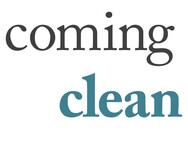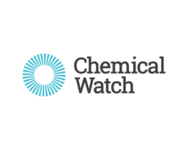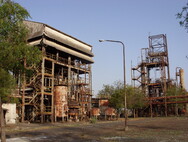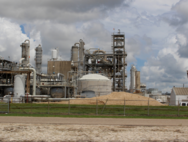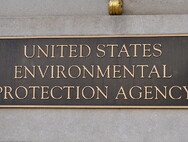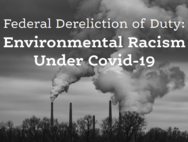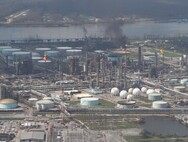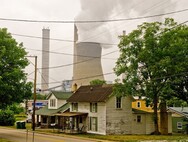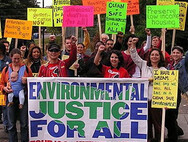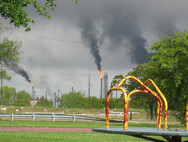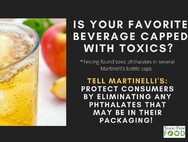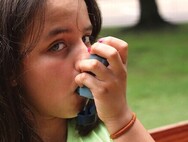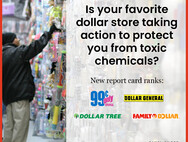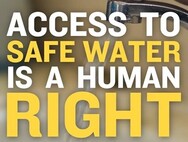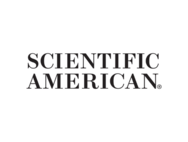More than 100 US environmental and health groups are calling for the chemical industry to curb its greenhouse gas emissions and sharply decrease reliance on oil and natural gas as raw materials.

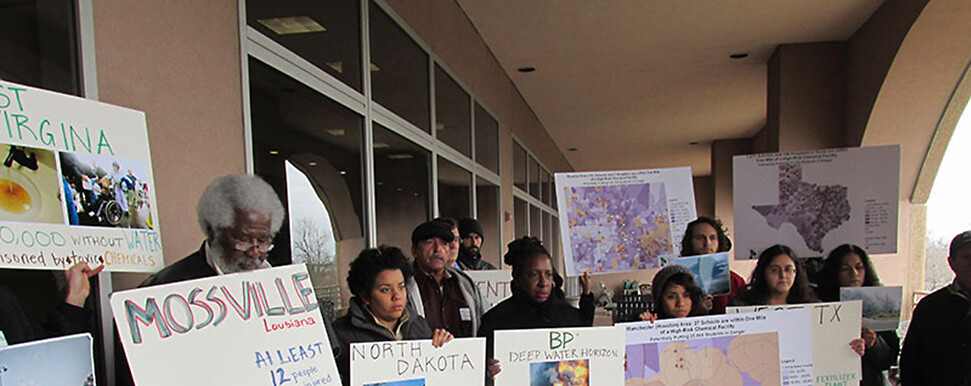
Media
Media
Share this page:
News Archive
Year
How Black Communities Become “Sacrifice Zones” for Industrial Air Pollution
December 21, 2021
Every time Pam Nixon drives along Interstate 64, she sees the Union Carbide plant. Wedged between a green hillside and the Kanawha River, the sprawling facility has helped define West Virginia’s “Chemical Valley” for the better part of a century, its smokestacks belching gray plumes and fishy odors into the town of Institute, population 1,400. To many West Virginians, the plant is a source of pride — it was a key maker of synthetic rubber in World War II — and a source of hundreds of jobs. But to Nixon and others in Institute’s largely Black community, it has meant something else: pollution. The plant reminds Nixon of leaks, fires, explosions — dangers she’s dedicated most of her adult life to trying to stop.
Read MoreSouth Valley farmers working to improve sustainable practices
December 21, 2021
South Valley community members say they’re working to improve farming sustainability in the middle of New Mexico’s ongoing drought. Federal officials met on Friday in the South Valley to talk about how to use infrastructure money to tackle the drought in the state. Read More
42 labor environmental, community and scientific organizations support Dr. Jennifer Sass's nomination to the U.S. Chemical Safety and Hazard Investigation Board
December 20, 2021
Dr. Sass’ educational and professional background make her exceptionally well qualified to serve as a board member on the CSB, which is charged with investigating chemical disasters and making recommendations to industry and government on best ways to prevent future incidents.
Read More'Louisville Charter' pushes for US chemicals industry overhaul
December 8, 2021
More than 100 NGOs and firms in the US and beyond have signed onto a blueprint for transforming the national chemicals sector, calling for "fundamental and comprehensive reform" to safeguard ecological and human wellbeing. The Louisville Charter for Safer Chemicals highlights a need to cease manufacturing persistent or bioaccumulative substances, mandate non-toxic alternatives, restrict potentially concerning substance classes via science-centred strategies and ensure civic participation in chemicals-related decisions. Published on 7 December by the Coming Clean network, the roadmap is backed by environmental justice parties, eco- and public health organisations and health, business and research experts. Read More
EPA Must Strengthen Protections for Citizens
December 7, 2021
Before the Bhopal disaster and the Institute incident, communities across the US did not have a guaranteed right to know the risks or the names of hazardous and toxic chemicals being produced, stored, transported or discharged by local industries near their homes. In 1986, Congress passed the Emergency Planning and Community Right to Know Act. In 1990 the EPA Risk Management Plan required facilities that use certain hazardous substances to develop plans for chemical accident prevention. Plans are required to identify the vulnerable zones and potential effects of a chemical accident, identify steps the facility takes to prevent an accident, and to spell out facility emergency response procedures when an incident occurs. Read More
The Chemical Industry: An Overlooked Driver of the Climate Crisis, Says New Report
December 7, 2021
A new report was released today about how the chemical industry is driving the climate crisis and what should be done about it. The new report - “The Chemical Industry: An Overlooked Driver of the Climate Crisis” - describes how chemicals and petrochemicals used to make plastic, rubber, fertilizers and more are made from fossil fuel feedstocks and manufactured using fossil-fuel based energy, accounting for roughly seven percent of global GHG emissions. Yet somehow the chemical industry is overlooked when it comes to climate solutions. Read More
Cut greenhouse gas emissions, advocates tell chemical industry
December 7, 2021
“We can’t solve the climate crisis without significantly reducing and replacing fossil fuels throughout the chemical industry,” Darya Minovi, a policy analyst at the Center for Progressive Reform, says in a statement. Minovi authored a report finding the chemical industry is the largest consumer of fossil fuels for energy and chemical feedstocks among all sectors.
Read MoreStatement of Solidarity with Environmental Justice communities in Bhopal on the 37th Anniversary of the Agrochemical Gas Disaster
December 3, 2021
On this 37th anniversary of the world’s worst industrial disaster, we, the undersigned individuals and organizations from across the United States, express our solidarity with the people of Bhopal who, in 1984, were exposed when 27 tons of the highly toxic pesticide intermediary chemical, methyl isocyanate (MIC), leaked due to a preventable incident at the Union Carbide pesticide plant. We stand united to end the harm from toxic chemicals throughout their lifecycle, from feedstock extraction to disposal and persistent contamination in humans and the environment. Read More
The EPA Administrator Visited Cancer-Causing Air Pollution Hot Spots Highlighted by ProPublica and Promised Reforms
November 24, 2021
Veteran environmental activist Christine Bennett, who grew up in Mossville, lost eight of her family members to illnesses that she attributes to “living in a chemical cocktail.” She’s traveled across the United States to speak about pollution. During her meeting with Regan, she asked him for the same things she’d already asked of so many government officials: a health clinic, a memorial, restitution from industry for the lost value of Mossville’s homes and funding for relocation. Her husband, Delma Bennett, said that Regan told them he was “taking this to heart and hearing everything we are saying.” “But we’ve met with so many of them over the years,” Christine Bennett replied. “All we do is be heard.”
Read MoreLouisville Chemours plant plans to curb super pollutants
November 17, 2021
Earlier this year, Inside Climate News reported the Chemours Louisville Works plant emits more greenhouse gases than all of the cars and light-duty trucks registered in the city combined... New equipment will help the chemical plant reduce its greenhouse gas emissions... But the new equipment will create its own emissions, releasing more than 1,600 pounds of chloroform and other hazardous air pollutants into fence-line communities, records show. The communities that live near the industrial corridor known as Rubbertown already deal with a disproportionate amount of the city’s pollution. Nearly 2,400 people live within a mile of the plant, 62% are people of color and nearly half are low-income, according to an EPA database. “You can’t trade off one bad thing, greenhouse gases, for another bad thing, hazardous chemicals,” said Eboni Cochran, co-director of Rubbertown Emergency Action (REACT),
Read MoreThe first People of Color Environmental Summit was 30 years ago. How much has changed?
November 3, 2021
At the panel discussion marking the 30th anniversary of the First National People of Color Environmental Justice Leadership Summit, Moore recalled being moved at the time because he was surrounded by people of color and all of them were working to address environmental issues in their communities just like he was in Albuquerque’s South Valley.
[Charlotte Observer]
Read MoreNew Budget Deal Marks the Biggest Climate Investment in U.S. History
October 28, 2021
Michele Roberts, national co-coordinator at the Environmental Justice Health Alliance, lauded the proposal as a major win for communities of color that have been disproportionately harmed by pollution from fossil fuel infrastructure. The bill includes money for cleaning up Superfund sites, electrifying transit systems to improve air quality, and directing clean energy jobs toward low-income communities.
[San Francisco Gate] Read More
Biden administration moves to curtail toxic ‘forever chemicals’
October 18, 2021
The Biden administration moved Monday to regulate a group of long-lasting, human-made chemicals that pose health risks to millions of Americans, even as they continue to be used in an array of products such as cosmetics, dental floss, food packaging, clothing and cleaning supplies. But Monday’s actions addressed only some of the recommendations submitted by a national environmental justice group in 2019.
[Washington Post] Read More
EPA Failed to Correct Industry Misinformation About Deadly Air Pollution at Public Meetings
October 13, 2021
At several recent information sessions on the risks posed by the carcinogenic air pollutant ethylene oxide, the Environmental Protection Agency invited local polluters to participate and failed to correct the companies’ false assertions that the chemical poses no danger. “The rich community can shut theirs down because they got the mighty dollar,” Christine Bennett, a resident of Mossville, Louisiana, said at the community meeting, referring to the Illinois plant that was shut after emitting ethylene oxide. “But here in a low-income, poor community, we can’t do nothing about it.”
[The Intercept] Read More
Here’s how Congress could hold the EPA accountable for its ‘dereliction of duty’
October 4, 2021
At the height of the COVID-19 pandemic last year, the EPA announced a policy that relaxed federal environmental monitoring and reporting requirements for polluting industries across the country. Now, in an effort to address long-standing systemic environmental inequities as well as the implications of the 2020 EPA decision to relax enforcement of the country’s environmental protection laws, the House Committee on Natural Resources is leading an effort to hold congressional hearings that would publicly acknowledge and examine the effects of that decision. The ultimate goal is to promote legislative solutions that tackle the cumulative effects of environmental injustices that have been magnified in vulnerable communities during the public health crisis.
[Grist]
Read MoreChemical Hazards in the Wake of Hurricane Ida, One Month Later
September 29, 2021
New Report Profiles Three Toxic Chemical Incidents Caused by Ida and the Need for Stronger Federal Protections to Prevent Further Public Health Risks Read More
We need to protect communities hit 'first and worst' by climate change, state lawmakers say
September 24, 2021
Low-income and indigenous communities as well as communities of color are hit "first and worst" by climate change, whether it's destructive hurricanes, droughts, or extreme heat, policymaker panelists said during a Climate Week NYC event Thursday — and holistic environmental-justice solutions are needed.
[Business Insider] Read More
The Just Transition Alliance is Hiring! Internal Support & Projects Coordinator
September 10, 2021
The Just Transition Alliance (JTA) — an Environmental Justice 501(c)3 nonprofit organization based in San Diego that works to address environmental and economic issues at local, state, national, and international levels — is seeking to hire a full-time Internal Support & Projects Coordinator. Read More
New Report Shows EPA Negligence in Protecting People of Color, Indigenous Peoples, and Low-income Communities From Disproportionate Impact of COVID-19
August 31, 2021
"This is another example of environmental racism that our communities are consistently impacted by,” added Richard Moore, co-coordinator, Los Jardines Institute. “Now is the time to begin to dismantle systemic racism within all levels of government."
[Vermont Law School] Read More
The Biden Administration’s Embrace of Environmental Justice Has Made Wary Activists Willing to Believe
August 1, 2021
Decades after emerging from the broader civil rights movement, setting itself apart from traditional environmentalism, flourishing in academia and wending through public discourse, the environmental justice movement has now achieved unprecedented prominence as activists work to entrench their gains within the federal government.
[Inside Climate News]
Read MoreMartinelli’s among brands searching for safer bottle cap options
July 27, 2021
When the nonprofit Defend Our Health tested bottle caps from 141 beverage brands, they found potentially harmful chemicals in more than a third of them. Two Martinelli’s products were among these brands, but the Watsonville-based apple juice and cider company says it is now in the process of addressing the issue.
Defend Our Health worked with the Campaign for Healthier Solutions to collect and test 273 glass bottle caps for phthalates and vinyl plastics. Read More
Front-line communities bet on Biden. Can his EJ plan deliver?
July 27, 2021
Environmental justice advocates have gotten used to hearing election-season promises, and so they didn’t get too excited last year when Joe Biden offered them this one: access and input to his political agenda.
The advocates said they were skeptical they could count on the longtime Democratic senator from Delaware, given his state’s poor reputation for environmental inequity. Read More
A path to climate, economic and environmental justice is finally on the horizon
July 26, 2021
In the next few weeks, congressional leaders have a critical opportunity to join forces with President Joe Biden to turn the tide against climate change, economic inequality, and environmental injustice.
[Op-Ed in The Hill by John Podesta, Center for American Progress and Michele Roberts, Environmental Justice Health Alliance for Chemical Policy Reform.] Read More
Most Glass-Bottled Beverages Contain Toxic Chemicals Linked to Reproductive Harm and Brain Development, New Study Says
July 14, 2021
A report released today by the Toxic Free Food Campaign looked at nearly 300 bottle caps from over 140 beverage brands and found that most glass-bottled beverages are capped with toxic or unsustainable chemicals. Read More
Prenatal exposure to ultra-fine particles increases a child’s risk of asthma, study finds
June 23, 2021
When Rosalind Wright started analyzing data on prenatal exposure to air pollution in mothers and children in Boston, she had a notion that ultra-fine particles could be even more harmful than the slightly larger particles she’d studied before. Read More
Environmental justice: From our ancestors to our children
June 5, 2021
"The fight for a livable planet and the fight for social justice are one and the same. The struggle for a stable climate, for clean air and water must begin in places like South Valley that have long paid the price for others’ wealth and comfort. And its success depends on building the power and prosperity of people in marginalized communities — so that no one’s home is a dumping ground."
- Richard Moore (co-coordinator of the Environmental Justice Health Alliance for Chemical Policy Reform, co-coordinator of Los Jardines Institute (The Gardens Institute) in Albuquerque, N.M., and co-chair of the White House Environmental Justice Advisory Council)
Dollar stores offer bargain prices - and toxic products.
April 6, 2021
When dollar stores sell products containing toxic chemicals, that expose only adds to the multiple sources of toxic pollution felt in communities like Mossville, LA, and other communities of color and low-income communities where chemical hazards and pollution are concentrated. These communities - which often must rely on dollar stores - need more action from these chains. Read More
Discount stores often sell products with hazardous chemicals. Low-income shoppers deserve better.
April 5, 2021
In the latest Retailer Report Card on chemical management policies, Dollar Tree and Dollar General improved their grades, but 99 Cents Only Stores once again received an F. If discount retailers care at all about the health and well-being of the communities they operate in, or the environmental racism that they are perpetuating, they should reallocate resources and start cleaning up their supply chains immediately. Read More
Retailer Report Card Ranks Dollar Stores
March 30, 2021
The 2020 report card on safer chemicals in consumer products was released by the Mind the Store campaign and the Campaign for Healthier Solutions looking at how 50 companies – including dollar store chains – rank when it comes to chemical safety in products and packaging. Read More
Court Upholds Ban on Phthalate Chemicals in Toys for Now
March 2, 2021
In 2016, the Environmental Justice Health Alliance for Chemical Policy Reform, NRDC, and Breast Cancer Prevention Partners sued the Consumer Product Safety Commission (CPSC) to force the agency to address toxic phthalate chemcials in children's products. On March 1, a federal appeals court left in place the resulting ban on several phthalates by rejecting most of the arguments made by the chemical industry opposing the ban, but also found flaws in the agency’s rulemaking process. It gave the agency an opportunity to fix those errors. Read More
All Communities Deserve Safe Water
February 19, 2021
Brand New Video from Environmental Justice Health Alliance for Chemical Policy Reform, Lideres Campesinas, and NRDC: Watered Down Justice, on race, income, and the need to ensure safe water for all. Read More
How Biden’s Environmental Justice Order Might Work
February 16, 2021
For decades, government officials have too often ignored front-line communities when it comes to pollution protection and public amenities. President Biden has given three top White House officials until May 27 to figure out how to fix that...Michele Roberts, a national co-coordinator for the Environmental Justice Health Alliance for Chemical Policy Reform, said Martinez and her team should engage in early consultation with environmental justice community members themselves — not only with their professional advocates and lawyers."These folks need to be at the table early and often, not after — not being invited to come in to hear what the master plan is, but being at the table to create the master plan," she said. A formal consultation process on the Justice40 goal hasn't yet begun."The people feel for the first time in forever that they have access to the White House. They have never felt that way before," she said. Read More
Media Share this page: |
What Is Environmental Justice? | Campaign for Healthier Solutions | Campaign for Healthier Solutions |
THE ENVIRONMENTAL JUSTICE HEALTH ALLIANCE IS IN STRATEGIC PARTNERSHIP WITH COMING CLEAN
info@comingcleaninc.org • (802) 251-0203 • EJHA – Coming Clean, 28 Vernon Street, Suite 434, Brattleboro, VT 05301
© 2025 Coming Clean Inc.


